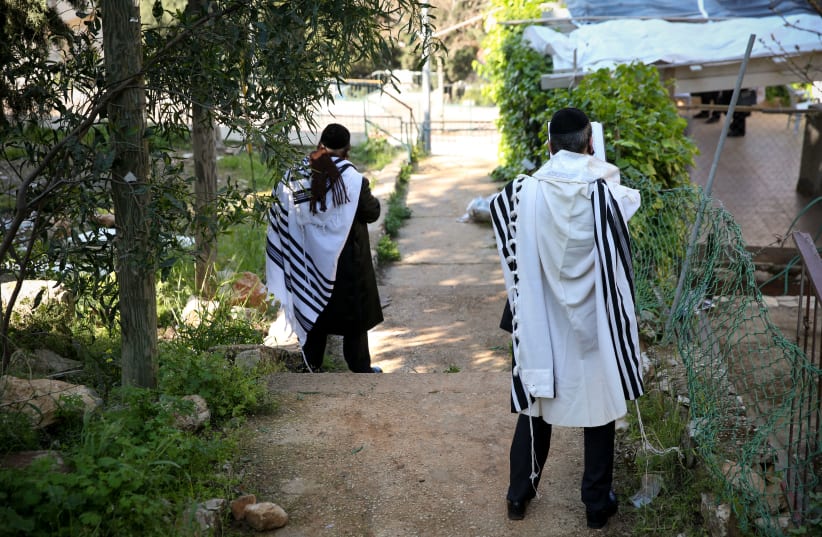Health Ministry Deputy Director-General Prof. Itamar Grotto said on Wednesday morning that the government is examining the options to change the coronavirus guidelines for synagogues and other places of worship that would ease restrictions in cities with low rates of infection.
Speaking at the Knesset Constitution, Justice and Law Committee, Grotto said that round table discussions have begun on the issue, and officials from the Health Ministry, the Religious Services Ministry, the Chief Rabbinate, and representatives from the ultra-Orthodox and Arab communities met for the first round of discussions on Sunday.
Health Minister Yuli Edelstein nevertheless expressed caution regarding easing restrictions on the number of worshipers allowed in houses of prayer, saying that 50% of infections are in the ultra-Orthodox and Arab communities where daily prayer is common.
He also said that the 10 so-called “red cities” with high COVID-19 infection rates were either majority ultra-Orthodox or Arab communities, or cities with large populations of those groups.
Edelstein said that with the Jewish High Holy Days approaching, a well-thought out plan was needed to ensure that mass synagogue attendance will not lead to “negative effects” in terms of COVID-19 infections as a result.
“In a synagogue which accommodates 500 people, if we allow 150-200 to pray there, then you have that many people together in synagogue for six hours [over the High Holy Days], entering and exiting, and people going to the bathroom,” said Edelstein.
“There is interaction between these people within a closed space and it is likely that there will be people there who have the coronavirus,” continued the minister. “The greatest religious commandment is to save life and protect one’s health. We will hope to do everything to allow people to pray and not infect others.”
Edelstein also addressed the concerns over the possible travel of tens of thousands of hassidim and others to the grave of Rabbi Nachman of Breslov in Uman, in the Ukraine, which health experts are concerned will create a new wave of infections.
The minister said that if such mass travel occurred this year it would lead to “a tragedy.”
Religious politicians and communities have chafed at tight restrictions on the number of worshipers allowed in prayer services, currently limited to 10 people inside a synagogue and 20 in an open space.
Several ultra-Orthodox MKs complained during the committee hearing that while restaurants are allowed to open along with gyms and swimming pools with much fewer restrictions, many religious people for whom praying is an important aspect of their lives are unable to attend synagogue.
Committee chair and United Torah Judaism MK Yakov Asher insisted that “sanctity of life in the ultra-Orthodox community is one of the most important commandments of the Torah,” but said that “common sense” needed to be used.
Asher said that “we have needed to give up on weddings and other issues,” but that “the ultra-Orthodox community has two very important things: the lifeblood of Judaism, prayer in synagogue and the world of Torah and yeshivas.”
“A solution must be found for synagogues and yeshivas which is what sustains the world, according to our beliefs,” said the MK.
Chief Rabbi David Lau, who joined the hearing via video conference call, also criticized the current regulations for synagogues, saying that a synagogue which has a large prayer hall should be allowed more than just 10 worshipers at a time.
And he also noted that many people who do not frequently attend synagogue during the year do go for the High Holy Days, and that efforts should be made to accommodate them.
Lau also said that prayer in open spaces need not be limited to just 20 people either.
“Establish conditions and we will abide by them, because in 45 days [on Rosh Hashanah] we will stand together and pray for an outbreak of love of one’s fellow and friendship between people, so until then find a way that the Jewish people will be able to pray in synagogue as they have done from time immemorial,” said the chief rabbi.
